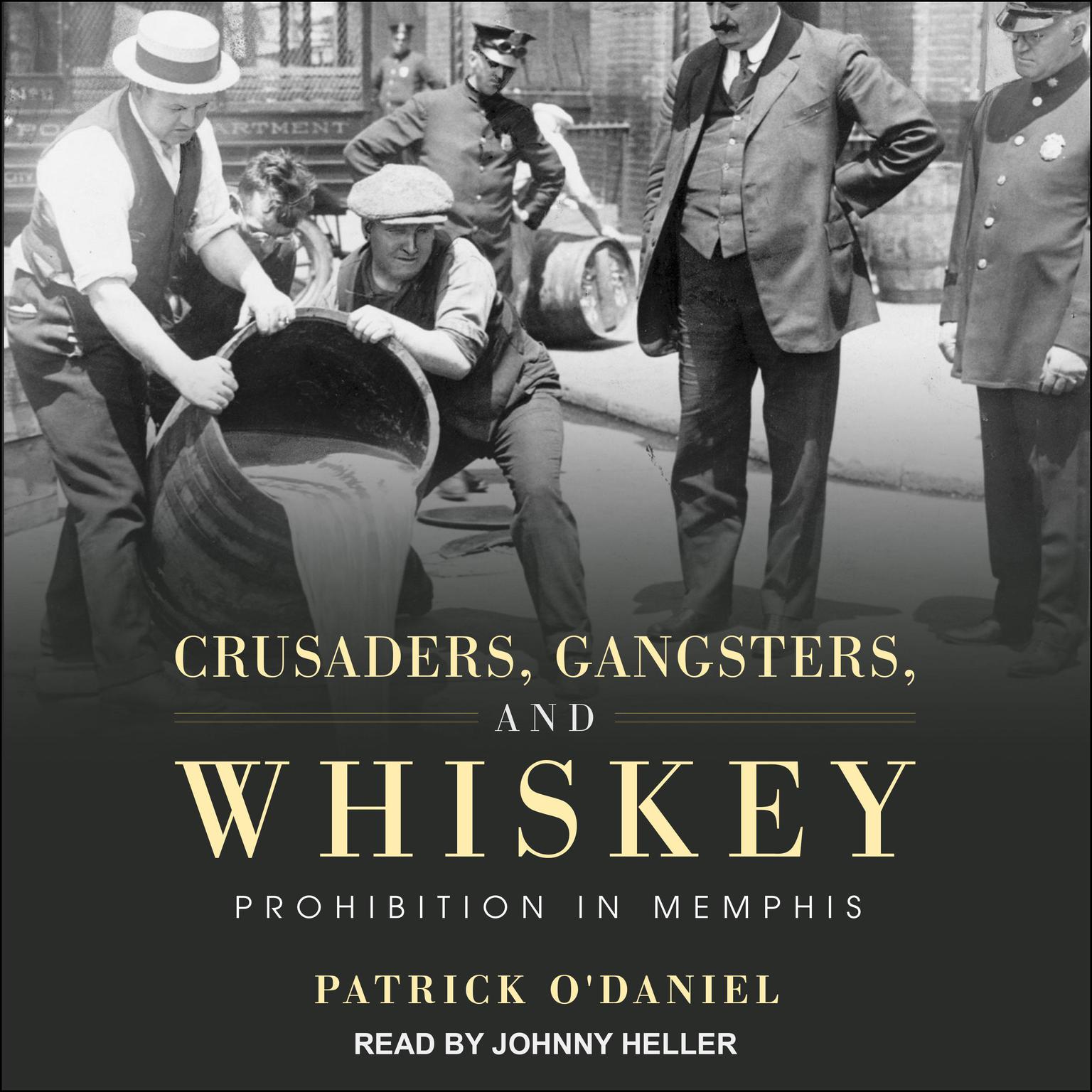 Play Audiobook Sample
Play Audiobook Sample
Crusaders, Gangsters, and Whiskey: Prohibition in Memphis Audiobook
 Play Audiobook Sample
Play Audiobook Sample
Quick Stats About this Audiobook
Total Audiobook Chapters:
Longest Chapter Length:
Shortest Chapter Length:
Average Chapter Length:
Audiobooks by this Author:
Publisher Description
Prohibition, with all its crime, corruption, and cultural upheaval, ran its course after thirteen years in most of the rest of the country―but not in Memphis, where it lasted thirty years.
Patrick O’Daniel takes a fresh look at those responsible for the rise and fall of Prohibition, its effect on Memphis, and the impact events in the city made on the rest of the state and country.
Prohibition remained perhaps the most important issue to affect Memphis after the Civil War. It affected politics, religion, crime, the economy, and health, along with race and class. In Memphis, bootlegging bore a particular character shaped by its urban environment and the rural background of the city’s inhabitants.
Religious fundamentalists and the Ku Klux Klan supported Prohibition, while the rebellious youth of the Jazz Age fought against it. Poor and working-class people took the brunt of Prohibition, while the wealthy skirted the law. Like the War on Drugs today, African Americans, immigrants, and poor whites made easy targets for law enforcement due to their lack of resources and effective legal counsel.
Based on news reports and documents, O’Daniel’s lively account reveals long-forgotten gangsters, criminal organizations, and crusaders whose actions shaped the character of Memphis well into the twentieth century.
Download and start listening now!
“The backstreets and backwoods cat-and-mouse chases between law enforcement and individuals making and selling alcohol illegally are brought to life, thanks to Johnny Heller’s narration…Heller’s voice is always engaging.”
— AudioFile
Quotes
-
“O’Daniel’s book is not only true crime, it is a virtual film noir in print with gangsters, bootleggers, cold-blooded killers, and corrupt officials bursting from the pages…A lively, illuminating, and fascinating read.”
— Clarion-Ledger (Jackson, Mississippi) -
“O’Daniel…has written the authoritative work on alcohol prohibition in the city…with richly descriptive and thoroughly researched episodes full of colorful characters.”
— Journal of Southern History -
“O’Daniel has impressively re-created scenes from this time through excellent descriptive detail, writing, and research.”
— Elizabeth Gritter, author of River of Hope
Crusaders, Gangsters, and Whiskey Listener Reviews
Be the first to write a review about this audiobook!
About Patrick O'Daniel
Patrick O'Daniel is executive director of library services for Southwest Tennessee Community College. He is author of When the Levee Breaks: Memphis and the Mississippi Valley Flood of 1927; Memphis and the Superflood of 1937: High Water Blues; and Historic Photos of Memphis. He has published articles in West Tennessee Historical Society Papers.
About Johnny Heller
Johnny Heller, winner of numerous Earphones and Audie Awards, was named a “Golden Voice” by AudioFile magazine in 2019. He has been a Publishers Weekly Listen-Up Award winner from 2008 through 2013 and he has been named a top voice of 2008 and 2009 and selected as one of the Top 50 Narrators of the Twentieth Century by AudioFile magazine.


